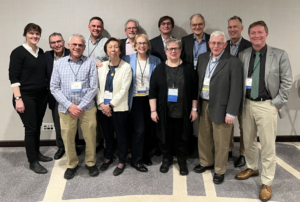
PAC Meeting, March 26, 2023
L to R: Dorthe Schaue, Edouard I. Azzam, David J. Pawel, Tony C. Slaba, Polly Y. Chang, Michael D. Story, Jonine J. Bernstein [Co-Chair], Harald Paganetti, Gayle E. Woloschak [Vice President], Mark P. Little, Roy E. Shore, Eric J. Grant, & A. Iulian Apostoaei
Oversees
Membership
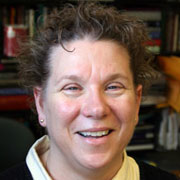
GAYLE E. WOLOSCHAK
is a Professor of Radiation Oncology and Radiology at Northwestern University Feinberg School of Medicine in Chicago and Associate Dean of the Graduate School. She and her group have been involved in studies of molecular consequences of radiation exposure, late tissue effects associated with radiation, and the use of radiation-inducible nanomaterials for cancer imaging and therapy. Dr. Woloschak also teaches radiation biology to radiation oncology and radiology residents, cardiology trainees, and graduate students and manages the Advanced Grant Writing Workshop for the Radiological Society of North America (RSNA). She earned her PhD in medical sciences from the University of Toledo (Ohio) and did post-doctoral studies in molecular biology at the Mayo Clinic. She has served on review panels for various federal agencies including the National Institutes of Health, the National Aeronautics and Space Administration, the U.S. Department of Energy, RSNA, the U.S. Army Medical Research and Materiel Command, and others. She is currently Editor-in-Chief for the International Journal of Radiation Biology, Section Editor for PLOS One, and serves on a variety of editorial boards. She is Chair of NCRP Program Area Committee 1, has served on organizational committees for several NCRP meetings, and has been involved in committees for several NCRP reports. She also served as President of the Radiation Research Society and is a member of the U.S. delegation to the United Nations Scientific Committee on the Effects of Atomic Radiation. |
|
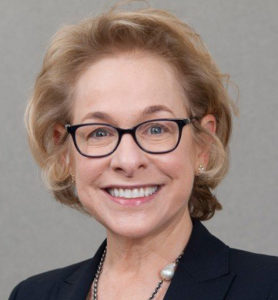
Jonine L. Bernstein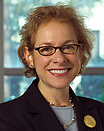 is an Attending Epidemiologist at the Memorial Sloan-Kettering Cancer Center (MSKCC) in New York City. Her core research focus is on breast cancer and gliomas and on understanding cancer risk and progression in order to identify those at highest risk because of gene carrier status, environmental exposures, or a combination of both. Dr. Bernstein is the Principle Investigator of the National Cancer Institute (NCI)-funded international 24-center Women's Environmental Cancer Radiation and Epidemiologic (WECARE) Study which was specifically designed to examine the interaction of radiation exposure and genetic predisposition in breast cancer, especially radiation-associated contralateral breast cancer (CBC) among 3,700 women with CBC and unilateral breast cancer. The WECARE Study has served as the source population for studies of candidate genes such as BRCA1, BRCA2, CHEK2, and ATM, candidate gene pathways of DNA damage response involved in radiation-induced double-strand break repair—ATM, CHEK2, P53 binding protein (53BPI), and MDC1, Mre11, Rad50, and Nbs1 (e.g., MRN nuclease complex), a genome-wide association study, and most recently mammographic density. The global hypothesis across these studies is that women who carry certain types of mutations will be more susceptible to breast cancer than noncarriers, and possibly to radiation-associated breast cancer. Dr. Bernstein currently serves as a member of the Board of Directors of the American College of Epidemiology, the External Advisory group for the NCI-sponsored Breast Cancer Family Registry, the National Council on Radiation Protection and Measurements, and most recently the NCI Board of Scientific Counselors-Clinical Sciences and Epidemiology. For the past two years, she has served on the Organizing Committee of the American Statistical Association Conference on Radiation and Health (2012 and 2014 meetings), and was Co-Chair of the Third North American Congress of Epidemiology, held in June 2011 for which she was honored by the 2012 ACE Award for Leadership and Service in Epidemiology. Dr. Bernstein holds a PhD in Epidemiology from Yale University, an MS in Applied Biometry from the University of Southern California, and an AB from Brown University. Before joining the faculty at MSKCC, she was Deputy Director of the Division of Epidemiology at Mount Sinai School of Medicine. |
|
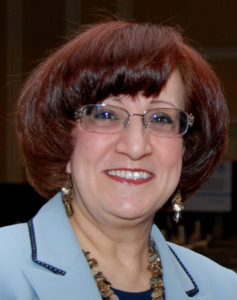
Isaf Al-Nabulsi
is a radiation scientist with nearly 40 y of experience in radiation health effects. Before retiring in 2023, Dr. Al-Nabulsi served as the U.S. Department of Energy (DOE) Japan Program Manager for 11 y. She spent eight months on detail as a Science and Energy Program Manager in the Office of Under Secretary for Energy and Innovation. She was the DOE Program Manager for the agency’s participation in the Study of One Million U.S. Radiation Workers and Veterans for less than 2 y. She previously served as an Acting Director, Office of Domestic and International Health Studies within the Office of Health and Safety, Office of Environment, Health, Safety and Security, and was responsible for managing and coordinating day-to-day activities associated with the domestic and international health studies, including enduring that office activities comply with departmental regulations and law. Dr. Al-Nabulsi also served as Senior Technical Advisor, from 2012 to 2020, to Director, Office of Health and Safety and provided advice on a wide range of topics related to the office’s mission. Prior to joining DOE, she worked at NCRP and the National Research Council/National Academy of Sciences. She has more than 30 y of scientific research and technical program management experience. She represented DOE as a member of the Nuclear Energy Agency - Organisation for Economic Co-operation and Development High-Level Group on Low-Dose Radiation Research, Cancer Moonshot Database Working Group, and DOE ex officio representative to the National Biodefense Safety Board. She is a member of Radiation Research Society, Health Physics Society, American Association for the Advancement of Science, and American Association for Cancer Research. Dr. Al-Nabulsi has a doctorate degree in Biomedicinal Chemistry, a master degree in Radiation Sciences, and a bachelor degree in Biology/Biochemistry. |
|
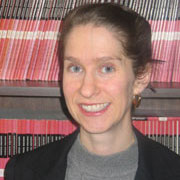
SALLY A. AMUNDSON
is an Associate Professor of Radiation Oncology at the Center for Radiological Research of Columbia University Irving Medical Center in New York, where she is Co-Director of the Center for High-Throughput Minimally-Invasive Radiation Biodosimetry. She holds a doctorate in radiation biology and cancer biology from the Harvard School of Public Health. Her research uses functional genomics approaches to study low-dose radiation and bystander effects, unique effects of space radiation, the development of gene expression approaches for radiation biodosimetry, and the linear-energy transfer dependence of heavy ion radiotherapy. Prior to joining the group at Columbia, Dr. Amundson worked on molecular radiation biology in the Division of Basic Science at the National Cancer Institute (NCI), where she helped to develop global gene expression profiling techniques, and where she was an Adjunct Investigator in the NCI Radiation Epidemiology Branch. She served on the Science Advisory Committee of the Radiation Effects Research Foundation in Hiroshima from 2009 to 2014 and on the U.S. Environmental Protection Agency Science Advisory Board’s Radiation Advisory Committee from 2015 to 2022. She has been a member of the Multidisciplinary European Low Dose Initiative (MELODI) Scientific Advisory Committee since 2016 and has served on the NCRP since 2004. Dr. Amundson is an Associate Editor of Radiation Research, and has served on the organizing and program committees for numerous meetings, including two of the American Statistical Association Conferences on Radiation and Health, which aim to integrate radiation biology with epidemiology. She is a recipient of the Michael Fry Research Award from the Radiation Research Society (RRS), and served as President of the RRS in 2021 to 2022. |
|
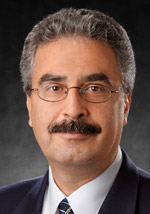
ARMIN ANSARI is the Radiological Assessment Team Lead at the Centers for Disease Control and Prevention (CDC) serving as subject matter expert in CDC’s radiation emergency preparedness and response activities. He received his BS and PhD degrees in radiation biophysics from the University of Kansas, starting his career as a radiation biologist, and did his postdoctoral research in radiation-induced mutagenesis at Oak Ridge and Los Alamos National Laboratories. He was a senior scientist with the radiological consulting firm of Auxier & Associates before joining CDC in 2002. He has led the development of key national guidance documents including guides for population monitoring and operation of public shelters after radiation emergencies and a number of training products for public health professionals. He is a past president of the Health Physics Society, adjunct associate professor of nuclear and radiological engineering at Georgia Institute of Technology, member of Georgia East Metro Medical Reserve Corps and Gwinnett County Community Emergency Response Team, and provides consultancy to the International Atomic Energy Agency. Since 2014, he has served as member of the U.S. delegation to the United Nations Scientific Committee on the Effects of Atomic Radiation. He is the author of Radiation Threats and Your Safety: A Guide to Preparation and Response for Professionals and Community, a book specifically directed at audiences without radiation protection expertise. |
|
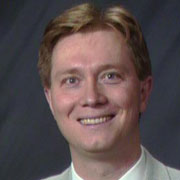
A. IULIAN APOSTOAEI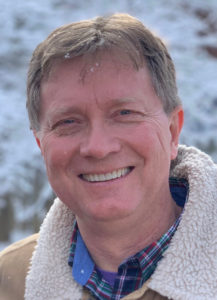
is a senior scientist at Oak Ridge Center for Risk Analysis, Oak Ridge, Tennessee and an adjunct professor in the Nuclear Engineering Department at University of Tennessee. He has more than 30 y of experience in radiological dose and risk assessment, and contributed to projects for different national and international organizations and agencies including National Institute of Occupational Safety and Health (NIOSH), National Cancer Institute (NCI), NCRP, U.S. Environmental Protection Agency, National Aeronautics and Space Administration (NASA), International Commission on Radiological Protection (ICRP), International Atomic Energy Agency, and United Nations Scientific Committee on Effects of Atomic Radiation. He is a co-author on NCRP Report No. 164 and ICRP Publication 150. Dr. Apostoaei participated in numerous retrospective and prospective dose and risk assessment studies of (1) individuals exposed to historic releases of radionuclides from Oak Ridge Reservation in Tennessee, Hanford Site in Washington, and Idaho National Engineering Laboratory in Idaho, (2) members of public exposed to nuclear weapons fallout in the United States and the Marshall Islands, or (3) astronauts exposed to space radiation. He performed reviews of scientific information on various topics related to radiation dose assessment models and dose-response analyses in epidemiological studies. External and internal dosimetry are areas of key interest for him. He participated in the development of an Internal Dose Estimation computer software Package (InDEP) to analyze bioassay data and calculate organ doses in workers exposed to plutonium and uranium by inhalation or ingestion, and of a new Fluoroscopy X-rays Organ-Specific Dosimetry System (FLUXOR) for historic exposures of patients to chest fluoroscopies. He also specializes in evaluation of various types of radiological risk (e.g., lifetime risk, probability of causation, years of life lost), and he contributed to the design, building and maintenance of several known radiation risk assessment tools, including NCI/NIOSH Interactive Radio-Epidemiological Program, NCI’s Radiation Risk Assessment Tool (BEIR VII/RadRAT), or NASA’s Risk Assessment Environment. He has extensive expertise in methods for propagation and analysis of uncertainties. |
|
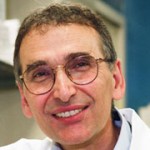
EDOUARD I. AZZAM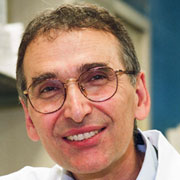 Edouard I. Azzam is Professor in the Department of Radiology at Rutgers University - New Jersey Medical School. He received his doctoral degree in the field of radiation biology from the University of Ottawa (Canada) in 1995. From 1995 to 2000, he pursued post-doctoral studies at the Harvard School of Public Health under the mentorship of Professor John B. Little. His research program has focused on elucidating the mechanisms underlying the biological effects of low doses/low fluences of ionizing radiations that differ in their biophysical characteristics. The goal is to elucidate the role of intercellular communication and oxidative metabolism in radiation-induced nontargeted effects and adaptive responses. The outcome of these investigations may be significant towards reducing the uncertainty associated with current models for predicting the long-term health risks of exposure to radiation. His studies have been funded by the National Institutes of Health, the National Aeronautics and Space Administration, and the U.S. Department of Energy; and they have resulted in the training of numerous students and post-doctoral fellows who remain engaged in unraveling the biochemical events underlying the responses of human cells to ionizing radiation. |
|
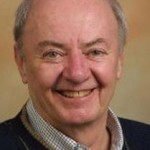
JOEL S. BEDFORD is Professor of Environmental and Radiological Health Sciences at Colorado State University, and holds a joint faculty appointment in the University Graduate Program in Cell and Molecular Biology. He received a D. Phil. degree in Radiobiology from Oxford University. He then joined the faculty at Vanderbilt University in 1966 and was promoted to Associate Professor in 1971. In 1975 he moved to his present position at Colorado State University. His research has focused principally on cellular radiation biology, radiation cytogenetics, carcinogenesis, genetic factors altering susceptibility to radiation effects and cancer biology. His programs have been funded, without interruption, by the National Institutes of Health (NIH), the U.S. Department of Energy, and/or the National Aeronautics and Space Administration since 1966. He served as a regular member and Chairperson of the NIH Radiation Study Section, and as a Councilor, Associate Editor, and later as President of the Radiation Research Society. He has received various awards such as the Failla Award and the Excellence in Mentoring Award from the Radiation Research Society. He was a regular member of the National Academies' Board on Radiation Effects Research, and then on the National Academies' Nuclear and Radiation Studies Board. He served a 5 y term on the Scientific Council of the Radiation Effects Research Foundation in Hiroshima, Japan, and is a member of NCRP. He is a member of NCRP Program Area Committee 1. Dr. Bedford has authored some 150 peer reviewed articles, including several book chapters, and is an inventor on two patents. |
|
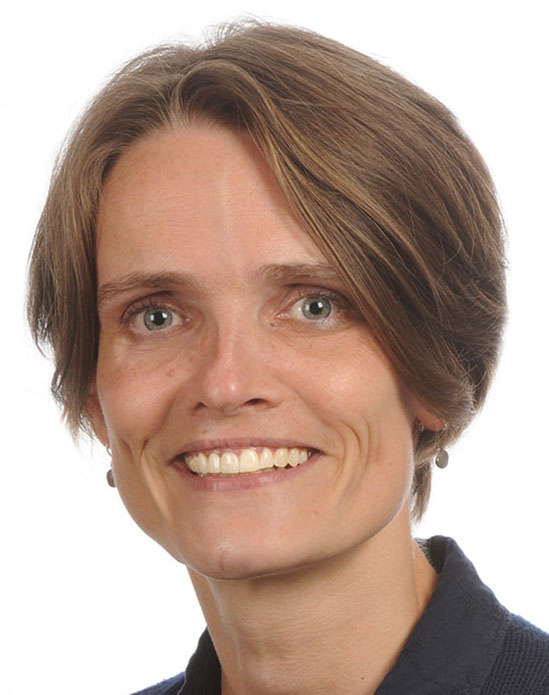
Marjan Boerma
|
|
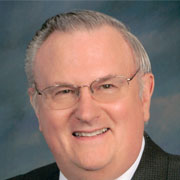
JOHN D. BOICE, JR.
is Professor of Epidemiology at Vanderbilt University School of Medicine. He is Past President of NCRP (2012 to 2018) and currently the Director of Science. After being awarded Doctor of Science in Epidemiology from Harvard University Dr. Boice went on to join the world-renowned National Cancer Institute (NCI) where he developed, and then in 1984 became the first chief of, the Radiation Epidemiology Branch. He remained in the U.S. Public Health Service (USPHS) for 27 y retiring as Captain. From 1997 to 2017, he was a member of the Main Commission of the International Commission on Radiological Protection, and for 25 y from 1993, a member of the U.S. delegation to the United Nations Scientific Committee on the Effects of Atomic Radiation. Dr. Boice has made substantial and significant contributions to our understanding of the risks posed by exposure to radiation, with over 550 publications in the scientific literature, many of them providing key elements for the scientific basis of radiological protection. He has been invited to deliver many distinguished lectures, including the Lauriston Taylor Lecture of the NCRP and the Sievert Lecture of the International Radiation Protection Association. His awards include the Harvard School of Public Health Alumni Award of Merit, the EO Lawrence Award from the U.S. Department of Energy, the Gorgas Medal from the Association of Military Surgeons of the United States, the outstanding alumnus award from the University of Texas at El Paso, the Distinguished Service Medal from the USPHS, the NCI Director's Award in 2021, and recently he was elected Honorary Fellow of the U.K. Society for Radiological Protection in 2022. The "John D Boice Jr Young Investigator Award" was established by NCRP in 2019 to recognize early career professionals. He currently serves on the Steering Committees for the Image Gently Alliance and for the Childhood Cancer Survivor Study (St. Jude). Dr. Boice has worked tirelessly to direct and advance the U.S. Million Person Study of nuclear workers and atomic test veterans, which will add significantly to our knowledge of the effects of prolonged exposure to low levels of radiation. | |

Polly Y. Chang
is the Scientific Director of the Non-clinical Development Program in SRI International's Biosciences Division. Dr. Chang received her BA in mammalian physiology, MA in bioradiology, and PhD in radiation biology/biophysics from the University of California, Berkeley. She is the principal investigator (PI) on a number of National Institute of Health, National Aeronautics and Space Administration, Biomedical Advanced Research and Development Authority (BARDA), and commercially-sponsored projects, using both in vitro and in vivo model systems to understand mechanisms of radiation injury and efficacy of medical countermeasures. As PI for the National Institute of Allergy and Infectious Diseases-supported medical countermeasure product development program, she and her team conducted a battery of studies that contributed to the Food and Drug Administration's approval of Romiplostim for hematopoietic syndrome under the Animal Rule. During her tenure at SRI, Dr. Chang has led multiple nonclinical product development programs for vaccines, biologics, metal decorporation agents, and small molecules that have resulted in over 10 approved investigational new drug applications. In collaboration with a team of SRI investigators, she is working on a BARDA-funded biodosimetry project to develop a hand-held field-deployable device for early detection of radiation exposure and triage. She has served on NCRP Scientific Committees for Report No. 181 on the evaluation of the biological effectiveness of low energy photons and electrons in inducing cancers in humans and Report No. 183 on radiation exposure in space and the potential for central nervous system effects. |
|
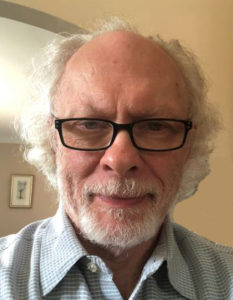
Harry M. Cullingswas Chief of the Statistics Department at the Radiation Effects Research Foundation (RERF) in Hiroshima and Nagasaki, Japan, until 2018 and is now a consultant to RERF, working on projects including new anthropomorphic dosimetry models of the human body and analysis of biodosimetry results. He has been conducting research at RERF since 1999. RERF is a public interest foundation funded by the Japanese Ministry of Health, Labour and Welfare and the U.S. Department of Energy (DOE). Dr. Cullings holds a BS in Fundamental Sciences from Lehigh University, and an MS in Medical Physics and PhD in Analytical Health Sciences (Biometrics) from the University of Colorado Health Sciences Center in Denver, Colorado. He completed a postdoctoral fellowship in Radiation Sciences, funded by the U.S. Department of Energy (DOE) at the University of Pittsburgh. The emphasis of Dr. Cullings’ research is on radiation dosimetry and other aspects of radiation epidemiology, including dosimetric uncertainty and applications of spatial statistics. Dr. Cullings has published numerous reports, papers in scientific journals, and book chapters on subjects related to radiation dosimetry and radiation health effects research. He served as a member of the Joint U.S.-Japan Working Group on the Reassessment of Atomic-Bomb Dosimetry, which created the Dosimetry System 2002 that is currently in use at RERF. Dr. Cullings served as a member of the executive council of the Radiation Research Society in 2019 to 2020. In 2020 he was appointed by the U.S. National Academy of Science to their Committee on the Assessment of Strategies for Managing Cancer Risks Associated with Radiation Exposure During Crewed Space Missions. Dr. Cullings was a member of the U.S. Environmental Protection Agency’s Radiation Advisory Committee from 2017 to 2021. | |
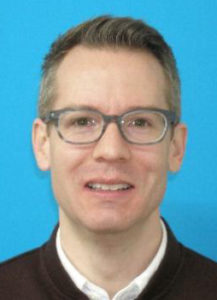
Benjamin C. French
| |

Eric J. Grant
recently retired from the Radiation Effects Research Foundation (RERF) in Hiroshima/Nagasaki, Japan, where he worked for the past 25 y. Dr. Grant's research focused on solid cancer risks after radiation exposure. He has also published on hormonal changes among women after whole-body exposure, and on the lack of evidence of trans-generational mortality effects of radiation exposure among the children of the atomic-bomb survivors. He continues as a consultant to RERF in the development of their data access infrastructure to improve RERF’s ability to collaborate with outside organizations. Dr. Grant received his BSEE from the University of Michigan and his PhD in Epidemiology from the University of Washington. He worked as a computer programmer for the University of Michigan Medical Center prior to relocating to Japan. For NCRP, Dr. Grant was most recently a member of the SC 1-27 writing team (Evaluation of Sex-Specific Differences in Lung Cancer Radiation Risks and Recommendations for Use in Transfer and Projection Models). He continues to serve on various societies’ committees. He is a member of scientific writing committees and performs independent consulting. He is currently a Special Government Employee with the U.S. Environmental Protection Agency. |
|
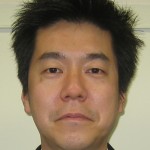
Nobuyuki Hamada
was born in Japan in 1976. He received a BSc in radiological sciences from Ibaraki Prefectural University of Health Sciences, and became a registered radiological technologist in 1999. He earned his MSc and PhD in pharmaceutical sciences from Nagasaki University in 2001 and 2004, respectively. He was a visiting PhD student at the U.K. Gray Cancer Institute for six months in 2003. He was a postdoctoral fellow at the National Institute of Radiological Sciences and in Tohoku University Institute of Development, Aging and Cancer, and a Center of Excellence Associate Professor in Gunma University Graduate School of Medicine. He is currently Senior Research Scientist at CRIEPI Radiation Safety Research Center and Visiting Professor at Hiroshima University Research Institute for Radiation Biology and Medicine. For NCRP, he is a PAC 1 member and was a Consultant to Scientific Committee 1–23 that produced NCRP Commentary No. 26. For the International Commission on Radiological Protection (ICRP), he is a member of Task Groups 111 and 119 and a Mentor, and was a member of Task Group 102 that produced ICRP Publication 152, Associate Editor for Publications 126 through 132, and Assistant Scientific Secretary. For Organisation for Economic Co-operation and Development/Nuclear Energy Agency (NEA)/Committee on Radiological Protection and Public Health, he is a member of High Level Group on Low Dose Research/Radiation and Chemical Adverse Outcome Pathways Topical Group, and was a member of Expert Group on Radiological Protection Science that produced NEA No. 7265 report. He also serves on Consultation Committee for AOP Development for Space Flight Health Outcomes, Associate Editor for Radiation Research, International Journal of Radiation Biology and Frontiers in Oncology, and Editorial Board Member for eight journals such as Mutation Research/Reviews in Mutation Research and PLOS ONE. He was also a member of the International Radiation Protection Association Task Group Phase 3 “The implementation of the eye lens dose limit,” and Chair of Scientific Advisory Board for the European CONCERT LDLensRad. He has been involved in various radiation effect studies since 1998, his current focus being placed on tissue reactions (e.g., circulatory and ocular disease). He has published >130 papers in peer-reviewed international journals and has received >20 awards. |
|

ANN R. KENNEDY is a Professor in the Department of Radiation Oncology at the University of Pennsylvania Perelman School of Medicine and the Richard Chamberlain Professor of Research Oncology at the University of Pennsylvania. She received her PhD in Radiation Biology from Harvard University and remained at Harvard as a faculty member for many years before joining the faculty at the University of Pennsylvania. She has been performing research on mechanisms of carcinogenesis and cancer prevention for her entire career, with research investigations including studies on molecular mechanisms, animal studies, and human trials. Much of the work in the Kennedy laboratory has focused on the soybean-derived protease inhibitor known as the Bowman-Birk inhibitor (BBI). BBI was originally identified as a cancer preventive agent from in vitro studies, and was then shown to prevent the development of cancer in many different models of animal carcinogenesis. BBI, as Bowman Birk Inhibitor Concentrate (BBIC), is now being evaluated as a human cancer chemopreventive agent and as a therapeutic agent for several different human diseases. Much of her recent effort has been aimed at developing countermeasures for radiation induced adverse health effects which could occur in astronauts during space travel. She is currently the Team Leader for the Radiation Effects Team of the National Space Biomedical Research Institute, as well as a Co-Team Lead of the Space Radiation Element of the Human Research Program at the National Aeronautics and Space Administration. Dr. Kennedy is an author of more than 265 scientific papers. She is currently a Distinguished Emeritus member of NCRP. |
|

AMY KRONENBERGis a staff biophysicist at the Lawrence Berkeley National Laboratory (LBNL). Her research focuses on fundamental processes that may result in genomic change following exposure to sparsely or densely ionizing radiation. Her group has also addressed links between molecular mechanisms of DNA damage repair and programmed cell death. Dr. Kronenberg has taught radiation biophysics to students at the National Aeronautics and Space Administration Space Radiation Summer School. She received her ScD in Cancer Biology from the Harvard School of Public Health. She has served on review panels for a host of federal agencies and international scientific review panels. She is a senior editor for Radiation Research and serves on the External Advisory Board of the NASA Innovative Advanced Concepts program. Dr. Kronenberg's activities with NCRP have included prior service on the Board of Directors, as a member or chair of the Nominating Committee, and as a member of several scientific committees. She is currently a member of NCRP Program Area Committee 1. |
|
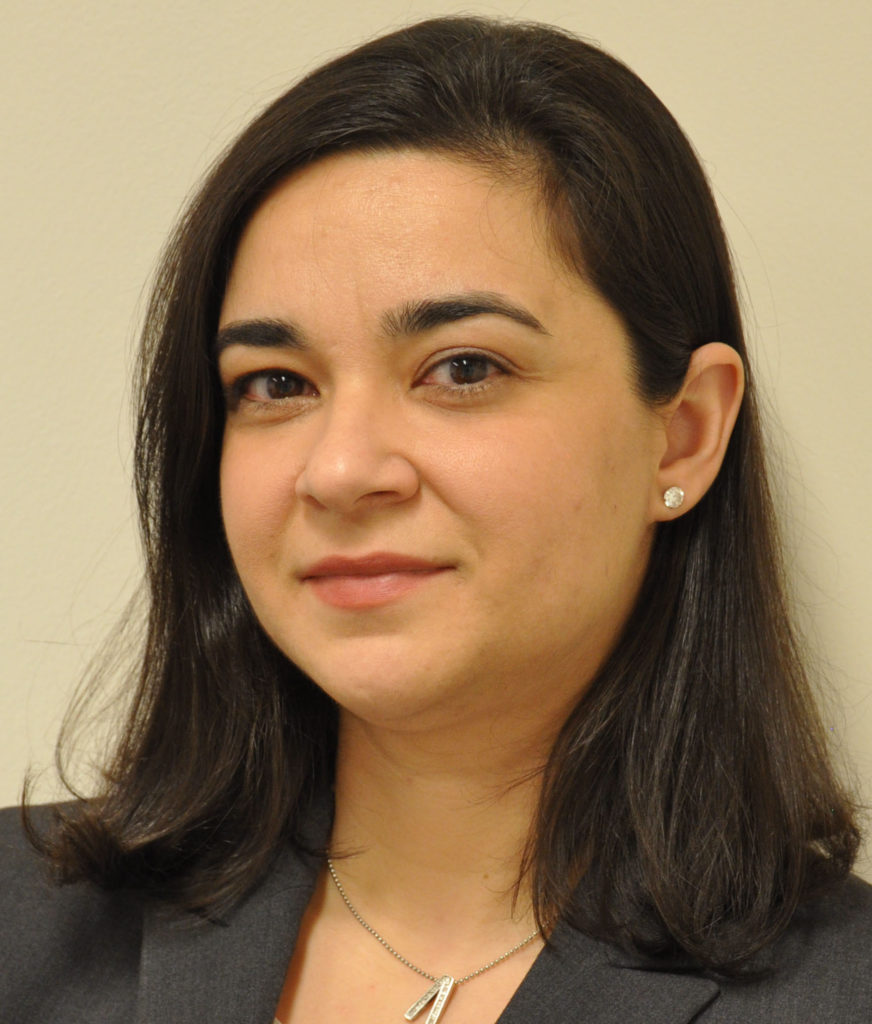
Evagelia C. Laiakis
|
|
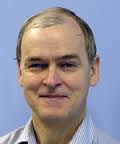
Mark P. Little
|
|
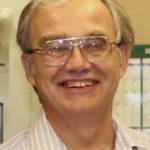
GREGORY A. NELSON earned his BS in chemistry from Caltech and his PhD in Cell and Developmental Biology at Harvard Medical School in 1979 where his thesis work was on the genetics of sex determination and spermatogenesis in the nematode C. elegans. During a postdoctoral fellowship at Harvard he investigated regulation of cell surface distribution of immunoglobulin on lymphocytes and its control by the calcium regulator, calmodulin. He joined the Jet Propulsion Laboratory in 1982 where he became interested in the space radiation environment and developed C. elegans as a biodosimetry system for spaceflight applications. As principal investigator, he flew the nematode experiments using the European Space Agency's Biorack facility on shuttle missions STS-42 (1992) and STS-76 (1996). He has since participated in shuttle missions STS-108, -118 and -135 examining effects of spaceflight on the immune and nervous systems of mice as part of the commercial biotechnology technology mission experiments 1-3. The spaceflight experiences led him to participate in a number of National Aeronautics and Space Administration (NASA) programmatic activities, including the design of a dedicated biological satellite (LifeSat) system. He joined Loma Linda University (LLU) in 1996 to direct its new radiobiology program and to develop the infrastructure needed to do space research with proton beams. As the LLU radiobiology program grew, he was able to maintain a modest research activity with C. elegans, and later began collaborations on projects that have investigated the effects of protons and charged particles on immune responses, thyroid cells in three-dimensional tissue models, microvasculature, and rodent behavior. More recently he served as principal investigator on two NASA program projects (NSCOR) team involving nine institutions that investigate how space-like radiation exposures produce time- and dose-dependent changes in the mouse brain. He was a founding director of NASA's Space Radiation Summer School held at the Brookhaven National Laboratory and serves as a member of NCRP. He recently completed a NASA-funded study investigating genes regulating bystander effects in C. elegans in a study involving RNA interference screening and microbeam-based experiments in collaboration with Professors Leslie Braby and John Ford of Texas A&M University and was appointed Adjunct Professor of Nuclear Engineering at TAMU in 2008. Another ongoing study funded by the U.S. Department of Energy investigates the effects of low doses of gamma rays on adaptive immunity in the mouse. Dr. Nelson is currently Professor of Basic Sciences and Radiation Medicine at Loma Linda University. |
|
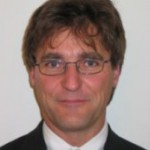
HARALD PAGANETTI is a Professor of Radiation Oncology at Harvard Medical School and Director of Physics Research for the Department of Radiation Oncology at Massachusetts General Hospital. He received his PhD in experimental nuclear physics in 1992 from the Rheinische-Friedrich-Wilhelms University in Bonn, Germany. He has been working in radiation therapy research since 1994 and has made many significant contributions to the field of radiation oncology physics and biology, specifically in proton therapy. He has published about 300 peer-reviewed publications and numerous book chapters and edited three books on proton radiation therapy. His research interests include planning and delivery uncertainties in radiation therapy, biological effect modeling, Monte Carlo dose calculation, advanced optimization and imaging techniques as well as understanding radiation induced toxicities and systemic effects on the immune system. His work has been funded mostly by the National Institute of Health, including seven R01 grant awards as Principal Investigator throughout his career. In 2022 he received the Particle Therapy Co-Operative Group (PTCOG) Robert R. Wilson Award for significant contributions to the field of particle therapy. For his efforts in mentoring junior faculty he received the A. Clifford Barger Excellence in Mentoring Award by Harvard Medical School in 2012. In addition to his research, he has been involved in numerous task groups and committees for organizations such as PTCOG, International Atomic Energy Agency, International Commission on Radiation Units and Measurements, International Commission on Radiological Protection, International Organization for Medical Physics, American Association of Physicists in Medicine (AAPM), and American Society for Radiation Oncology (ASTRO) and served, for instance, as the Physics Track Chair of ASTRO as well as Therapy Program Director for AAPM. He currently serves on ASTRO’s Research Grants Evaluation Subcommittee is an elected member of NCRP. |
|

DAVID J. PAWEL is currently a Special Government Employee (Expert) with the Radiation Protection Division of the U.S. Environmental Protection Agency (EPA) where he had served as Statistician since 1997. His current focus is the reassessment of the EPA radiogenic cancer risk estimates. He is a co-author of the Blue Book on EPA's most recent radiogenic risk models and an EPA technical report on its assessment of risks from radon in homes. In 2003, as the second Beebe Fellow, he studied methods to improve cancer-specific radiogenic risk estimates at the Radiation Effects Research Foundation (RERF) in Hiroshima, Japan and the National Cancer Institute in 2004. Dr. Pawel was a member of the RERF Statistics Department from 1992 to 1994. He is a member of NCRP and served on its committee on uncertainties in internal dose estimates. He is also a member of the U.S. delegation to the United Nations Scientific Committee on the Effects of Atomic Radiation (UNSCEAR), and he currently serves as Senior Technical Advisor for UNSCEAR's committee on Epidemiological Studies of Radiation and Cancer. He has a BS in Mathematics from the College of William and Mary, an MS in Statistics from Rutgers University, and a PhD in Statistics from the University of Wyoming. |
|
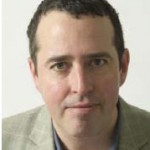
James Root
|
|
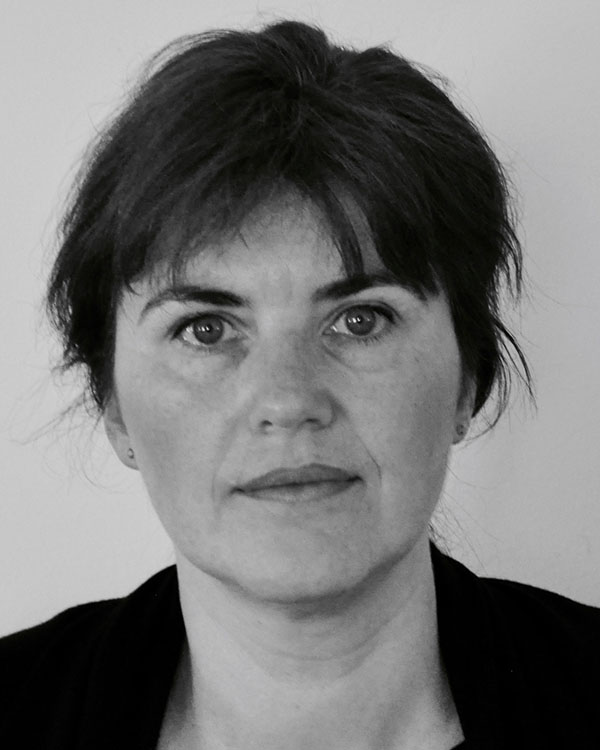
Dorthe Schaue
interests for almost two decades have been in the effects of ionizing radiation on the immune system, tumor immunity, and on normal tissues protection. Originally trained at premier radiation research institutions in the United Kingdom and Germany, including the Gray Laboratory in London and the Paterson Institute in Manchester she developed an interest in the immunological aspects of radiation exposures. She was able to build on this knowledge as a postdoctoral fellow and now as an Associate Professor in the Department of Radiation Oncology at University of California-Los Angeles as evidenced in her publications, invitations to present at scientific meetings, and success with funding. As part of a U.S. Department of Defense multi-team award that studied TGFβ blockade in the context of radiation therapy in advanced breast cancer patients she was in charge of the immune monitoring. Her current research efforts focus on understanding the complex interaction at the irradiated immune-tumor-host interface. Her interests in radiation-induced immune imbalances and the role of chronic inflammation, fibrosis and tissue remodeling in late effects of radiation damage, and life shortening grew through her involvement in extensive radiation mitigation studies. |
|

GEORGE SGOUROS is Professor of Radiology, Oncology and Radiation Oncology, Director of Radiopharmaceutical Dosimetry Section of the Division of Nuclear Medicine, Johns Hopkins University, School of Medicine. He has been principal investigator or program leader on numerous grants with over 20 y experience in modeling and dosimetry of internally administered radionuclides with a particular emphasis on patient-specific dosimetry, alpha-particle dosimetry, and mathematical modeling of radionuclide therapy. Dr. Sgouros' laboratory is currently engaged in preclinical research investigating targeted alpha-emitter therapy of metastatic cancer. He is author on more than 100 peer-reviewed articles, as well as several book chapters and review articles. He is chairman of the Medical Internal Radionuclide Dose Committee of the Society of Nuclear Medicine, as well as steering committee member, of the American Association of Physicists in Medicine, Task Group on Internal Emitter Dosimetry. He has served as chairman of the Dosimetry and Radiobiology Panel at a U.S. Department of Energy Workshop on alpha-emitters in medical therapy and, in the early 1990s, provided the physics/dosimetry support for the first Food and Drug Administration-approved human trial of targeted alpha-emitter therapy. He is also a member of the scientific advisory board of AREVA Med (Bethesda, Maryland), which is developing 212Pb-based alpha-emitters for targeted cancer therapy. Program areas of interest: medicine; dosimetry and measurement; education, risk communication, and outreach. |
|
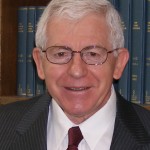
ROY E. SHORE
was a Professor and Chief of the Epidemiology Division at New York University Grossman School of Medicine before going to the Radiation Effects Research Foundation in Hiroshima-Nagasaki as Vice Chairman and Chief of Research. He is an author of over 100 radiation-related publications. He has served on numerous governmental and scholarly committees, including as a long-time member of the International Commission on Radiological Protection and NCRP, and has served on various committees or task groups for the United Nations Scientific Committee on the Effects of Atomic Radiation (UNSCEAR), the World Health Organization, the National Academy of Sciences, the National Cancer Institute, and the U.S. Environmental Protection Agency, among others. Most recently, he evaluated the projected health effects of the Fukushima radiation accident for UNSCEAR. His interests include the effects of radiation on both cancer and noncancer disease incidence, and understanding the epidemiologic and biological modification of radiation effects by various environmental, genetic and age factors. Recent publications have particularly focused on the effects of low-dose and low dose-rate radiation. |
|
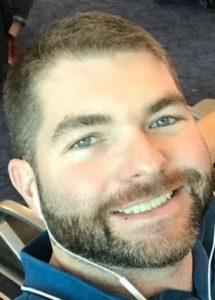
Brock Sishc
is the cancer discipline lead for the Space Radiation Element at National Aeronautics and Space Association (NASA) Johnson Space Center. His scientific background is in radiation biology, translational radiation oncology, the response of biological systems to charged particle exposure, charged particle radiotherapy, and radiation carcinogenesis. He received a doctorate in radiation cancer biology from the Department of Environmental and Radiological Health Sciences at Colorado State University (CSU), in the laboratory of Dr. Susan Bailey. During his time at CSU, Dr. Sishc's research efforts revolved around space radiation biology and the role of telomeres in the response of normal tissues and cancer to ionizing radiation exposure.
After graduating in May 2014, he began training as a post-doctoral research fellow in the laboratory of Dr. Michael Story at the University of Texas Southwestern Medical Center in the Department of Radiation Oncology in the Division of Molecular Radiation Oncology. During that time his research focused in several areas including translational radiation oncology, specifically stereotactic body radiotherapy and combined modality therapies with clinical radioprotectors and radiosensitizers in addition to continuing his research into space radiation carcinogenesis and charged particle radiotherapy. He currently resides at NASA’s Johnson Space Center where his primary responsibility is promoting research into understanding the risk of carcinogenesis resulting from space radiation exposure. Dr. Sishc is an Early Career Investigator member of the Radiation Research Society.
|
|
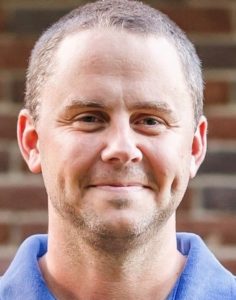
Tony C. Slaba
|
|
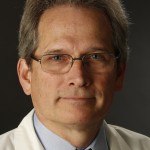
MICHAEL D. STORY
is a professor at the University of Texas (UT) Southwestern Medical Center, Dallas. Dr. Story earned his PhD from Colorado State University. He holds the David A. Pistenmaa, MD, PhD Distinguished Chair in Radiation Oncology, serves as Vice-Chair of the Department of Radiation Oncology, Chief of the Section of Molecular Radiation Biology, and Director of the Pre-clinical Radiation Core Facility. Dr. Story serves on the editorial board of Mutagenesis, Scientific Reports, Translational Cancer Research and the Publications Committee of the Congress of Space Research (COSPAR). Dr. Story is a member of the Scientific Program sub-Committee and Executive Committee of the Particle Therapy Cooperative Group (PTCOG). Dr. Story is also a member of the Board of Directors of NCRP. Dr. Story directs the radiobiology course for the Medical Physics graduate program and the Radiation Oncology medical resident program and was a faculty member for National Aeronautics and Space Administration’s (NASA) Space Radiation Summer School. Dr. Story's research is focused on five areas associated with radiation exposure: (1) delineating the effects of novel superoxide dismutase compounds that can act as both radioprotector and radiosensitizer in the same setting; (2) understanding and exploiting the biological effects of tumor treating fields in combination with radiation and/or chemotherapy agents; (3) developing biomarkers of the radioresponse of lung and liver tissues to high linear-energy transfer radiation exposures, including the development of biomarkers of carcinogenic risk; (4) enhancement of carbon ion radiotherapy for pancreatic and head and neck cancers; and (5) identification of genomic or epigenomic factors that predict or are prognostic for the radioresponse in head and neck squamous cell carcinoma. Dr. Story's research is funded by the National Cancer Institute, NASA, the Cancer Prevention and Research Institute of Texas, and industry. |
|
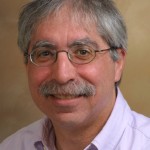
MICHAEL M. WEIL is a professor in the Department of Environmental and Radiological Health Sciences at Colorado State University (CSU). His research, which takes advantage of murine models of radiation carcinogenesis and leukemogenesis, is focused on understanding how radiation exposure can lead to cancer and why some individuals may be more susceptible than others. At CSU, Dr. Weil teaches a graduate level course in cancer genetics and lectures in courses on cancer biology, environmental carcinogenesis, principles of radiation biology, and the pathobiology of laboratory animals. Dr. Weil earned his PhD in Microbiology from the University of Texas at Austin and was trained in cancer genetics and radiation biology in the Department of Biochemistry and Molecular Biology Biochemistry and the Department of Experimental Radiotherapy at the University of Texas M.D. Anderson Cancer Center. Dr. Weil is a former Radiation Research Society council member and has served on National Institutes of Health, U.S. Department of Defense, and National Aeronautics and Space Administration grant review panels. |
|
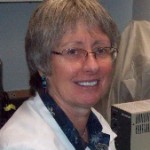
JACQUELINE P. WILLIAMS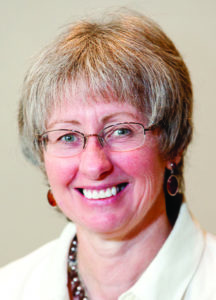
completed her undergraduate degrees at the University of Nottingham, followed by her post-doctoral training in radiation biology at St. Bartholomew's Hospital, University of London, United Kingdom. Shortly after completing her studies, she joined the faculty at the University of Rochester, New York, in the department of Radiation Oncology and, later, in the department of Environmental Medicine. Over her career, Dr. Williams has served as the President of the Radiation Research Society, the Research Chair on the Board of the American Society for Radiation Oncology, and Council Member to the International Association for Radiation Research, as well as associate editor on several radiation-related journals, including the International Journal of Radiation Biology. Although now semi-retired, Dr. Williams has accrued nearly 40 y of experience in radiation biology and related fields and has been involved in a wide range of research areas, clinically-related oncologic studies and clinical trials, tumor blood flow studies, long-term carcinogenic studies, and pharmacological and toxicological projects. In particular, her research involved identifying mechanisms that underlie the initiation and progression of radiation-induced late normal tissue effects as a consequence of accidental exposures or the low doses associated with either space travel or mass terrorism events, with the goal of developing protection and/or mitigation strategies. |
|
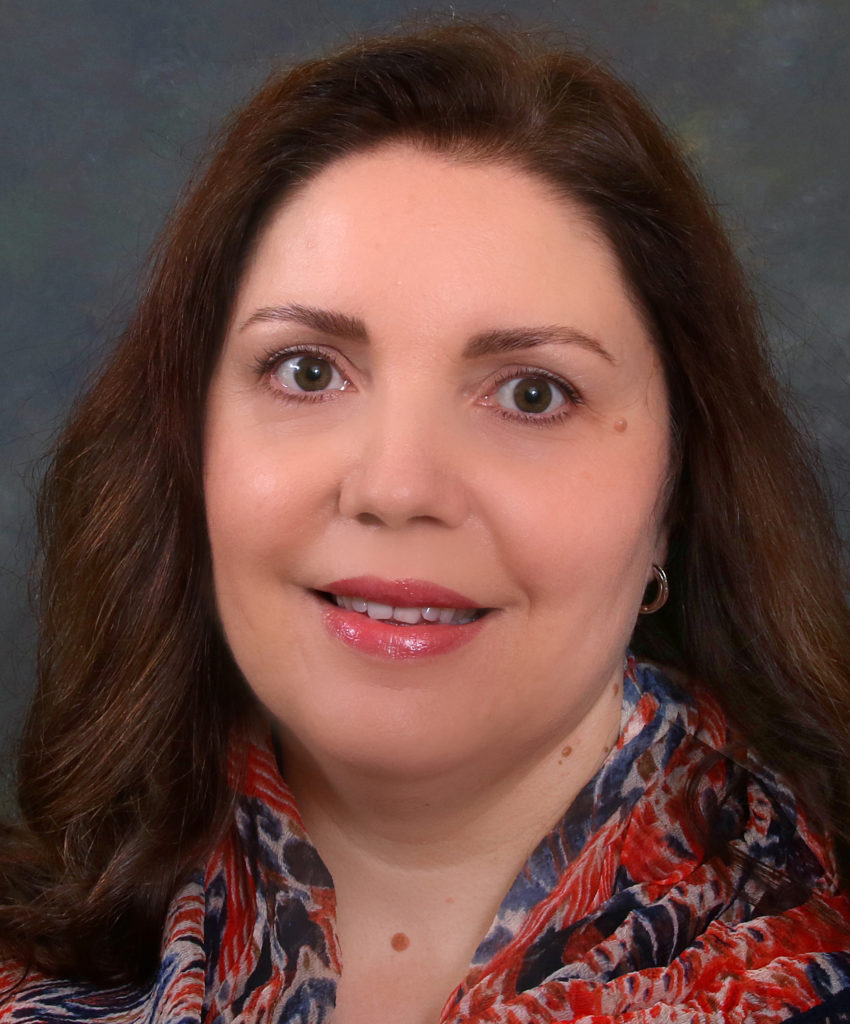
Lydia B. Zablotska
|






 is an Associate Attending Neuropsychologist in the Department of Psychiatry and Behavioral Sciences at Memorial Sloan-Kettering Cancer Center and an Associate Professor of Psychology in the Department of Psychiatry and the Department of Anesthesiology at Weill Cornell Medical College. His neuroimaging research focuses on the cognitive effects of cancer diagnosis and treatment, including surgery, anesthesia, chemotherapy, radiotherapy, and endocrine therapy, utilizing structural and functional techniques, as well as neurocognitive measures. His clinical expertise is in the assessment of cognitive abilities in adults following cancer treatment. He completed his postdoctoral training in clinical neuropsychology at Columbia University College of Physicians and Surgeons, a second fellowship in neuroimaging at Weill Cornell Medical College, and completed a predoctoral residency in neuropsychology at Yale University School of Medicine.
is an Associate Attending Neuropsychologist in the Department of Psychiatry and Behavioral Sciences at Memorial Sloan-Kettering Cancer Center and an Associate Professor of Psychology in the Department of Psychiatry and the Department of Anesthesiology at Weill Cornell Medical College. His neuroimaging research focuses on the cognitive effects of cancer diagnosis and treatment, including surgery, anesthesia, chemotherapy, radiotherapy, and endocrine therapy, utilizing structural and functional techniques, as well as neurocognitive measures. His clinical expertise is in the assessment of cognitive abilities in adults following cancer treatment. He completed his postdoctoral training in clinical neuropsychology at Columbia University College of Physicians and Surgeons, a second fellowship in neuroimaging at Weill Cornell Medical College, and completed a predoctoral residency in neuropsychology at Yale University School of Medicine.
 News & Events
News & Events